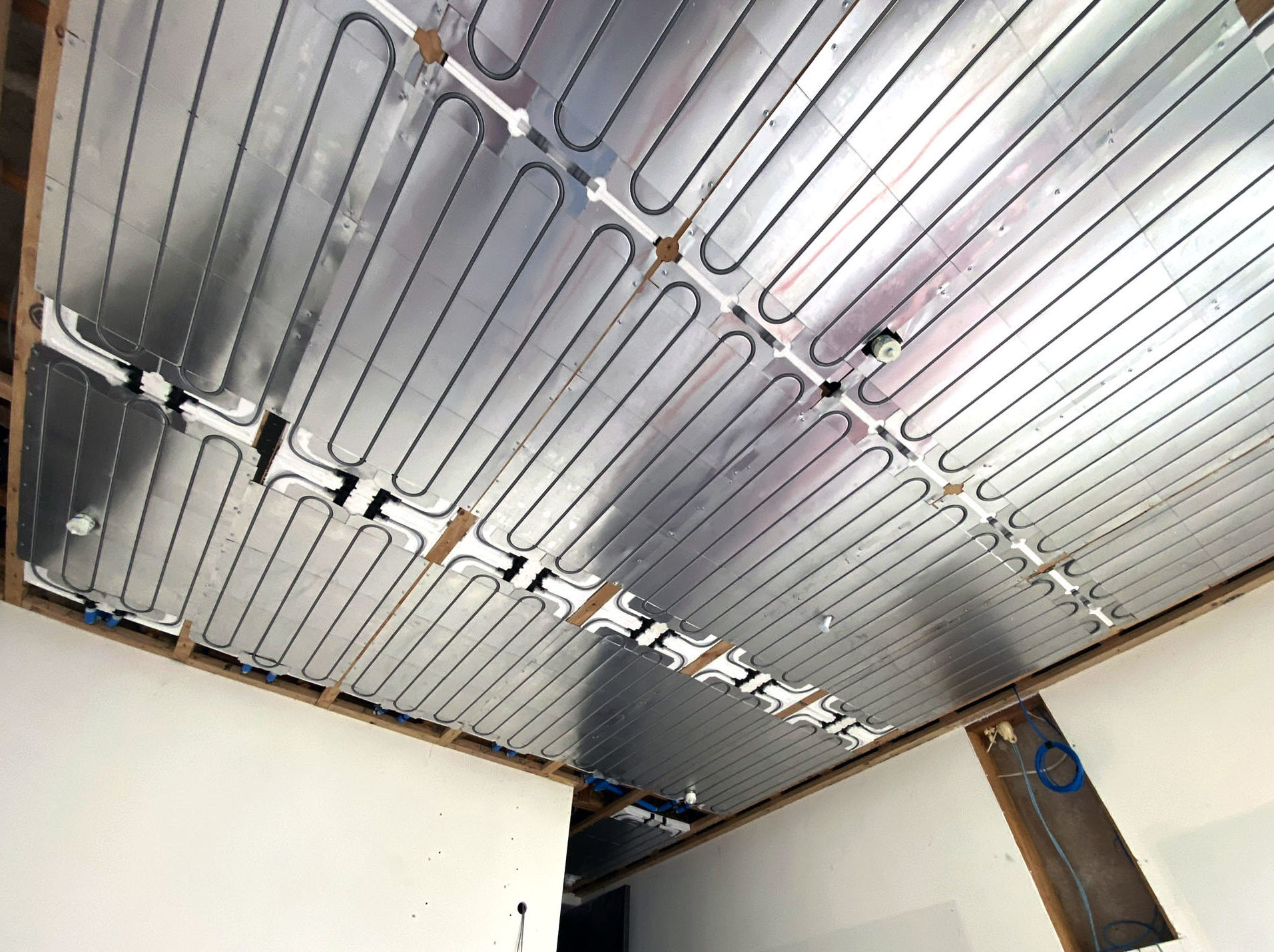

Firstly, what is Radiant Heating?


Radiant heating refers to the transfer of thermal energy (heat) via electromagnetic waves. Transferring heat through radiation is one of the primary methods of heat transfer (radiation). The other two methods of transfer are conduction, which requires contact between objects, and convection, which involves the movement of fluids or gases, radiant heat transfers through empty space.
The laws of thermodynamics state that:
“Heat always moves from warmer bodies to cooler ones when a temperature differential exists.”
Because of this, a radiant surface that is warmer than the surrounding environment can provide radiant heating. Hydronic or electric radiant heating systems can be installed within the floors, walls, or ceilings of a structure.
The sensation of radiant heating is often compared to the feeling of standing under the sun’s rays, or close to a fire.
For more information regarding radiant heating, refer to this article: What is Radiant Heating?
Remember: Heat Does Not Rise!
When most people first hear about radiant ceiling heating, they assume that it wouldn't work because of the assumption that "heat rises." To understand how radiant ceiling heating works, we first need to debunk that myth:
MYTH: Heat rises.
FACT: Hot AIR rises. Heat can go down, just stand under the sun and feel it.
This truth is, hot air rises and cold air sinks. Unfortunately, the bad habit of generalizing has resulted in the narrative that heat rises. In reality, the hot fluid is what rises during convection, whether that fluid be air or liquid.
What are Ray Magic® NK Radiant Ceiling Panels?

Ray Magic® NK radiant ceiling panels provide efficient and effective hydronic radiant heating and cooling.
When coupled with an efficient energy source, such as an air-to-water heat pump, a radiant ceiling provides unmatched comfort while maximizing system efficiency.
Explore Ray Magic® here.
What Are The Benefits of Radiant Ceiling Heating Panels? (Ray Magic NK)
When comparing heating performance with other radiant heating terminal options, Ray Magic® NK panels provide a number of advantages:
-
Low Thermal Mass:
Since Ray Magic® NK panels have a low thermal mass, heating loads can be met using cooler water than a radiant floor. Because of this, the energy source (heat pump or boiler) won’t need to work as hard, increasing system efficiency. -
High-Temperature Capabilities:
Although lower water temperatures can be used to meet heating loads, a radiant ceiling is not limited to the same maximum radiant surface temperature as a radiant floor. The maximum surface temperature of a radiant floor is limited to around 87°F. If the floor is operated above this temperature, the occupants are likely to complain of uncomfortably hot and sweaty feet. -
Less Radiant Surface Required:
Since a radiant ceiling can operate at a higher surface temperature compared to a radiant floor, only 60-80% ceiling coverage is required to meet heating loads. This provides significant cost savings and reserves the remaining ceiling space for ceiling fixtures such as lighting, fire sprinklers, and speakers. -
Unobstructed Radiant Surface:
Many obstructions that would be placed on, and obstruct, a radiant floor, are avoided when using a radiant ceiling. Since a radiant ceiling avoids obstructions like furniture and carpeting, a radiant ceiling provides an unobstructed radiant surface that can provide truly even heating. -
Ease Of Installation:
Ray Magic® NK radiant ceiling panels offer several features that facilitate a quick and easy installation on the job site. Read more
here.
Looking for more information from third-party experts?
- Read Radiant Ceilings Vs Radiant Floors by Tom Tesmar
- Read 5 Ways Radiant Heat Is Better In The Ceiling by John Seigenthaler